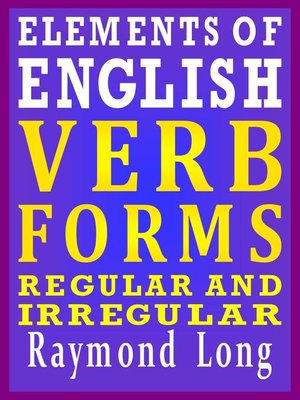
Sign up to save your library
With an OverDrive account, you can save your favorite libraries for at-a-glance information about availability. Find out more about OverDrive accounts.
Find this title in Libby, the library reading app by OverDrive.



Search for a digital library with this title
Title found at these libraries:
| Library Name | Distance |
|---|---|
| Loading... |
Lists of irregular verbs are easy to find. Most give three parts: "ride", "rode", "ridden". For many verbs, isn't enough information. The verb "shrink" has both "shrunk" and "shrunken". The verb "rot" has both "rotted" and "rotten". The verb "pass" has both "passed" and "past". What is the difference?
Many verbs have a passive participle: "farmed land" is land that someone farms. But for some verbs this participle has an active meaning: "an accomplished artist" is an artist who has accomplished things, not an artist who someone else accomplishes. Some verbs have participles with both passive and active meanings.
Most verbs form their subject-noun by adding -er: the verb "play" has "player". But some are irregular: "liar", "actor", "glazier", "guarantor", "claimant", "hangman".
The English verb isn't nice and neat. You can't just learn three parts and then work out all the rest through regular rules. Instead, this book lists ten parts for each verb.
This book is not just another reference list of verbs. It shows the depth of variation and irregularity among English verbs, and it groups similar verbs together to make the patterns behind them easier to learn.







